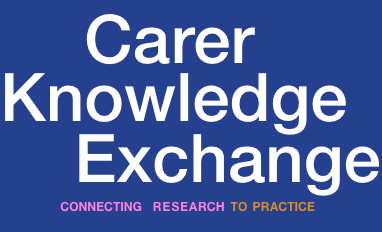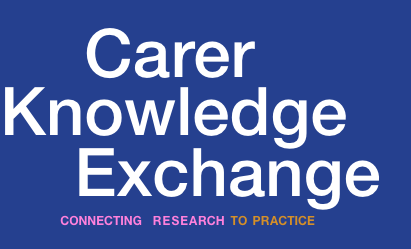‘Everything would have gone a lot better if someone had listened to me’
A nationwide study of emergency department contact by people with a psychosocial disability and a National Disability Insurance Scheme plan
Published Date: 7.11.2023
Theme: Service systems
Sub-theme: Health care services
Verification Statement
This publication / resource is hosted on a publicly available external link. If the full text is not publicly accessible, summary points are included and a contact method for the author(s) is provided, where available.
The summary information presented is based on content submitted by an author or other user, along with publicly available information about the publication / resource added by the Carer Knowledge Exchange team.
All content is reviewed, edited and approved by the Carer Knowledge Exchange team, in line with our Submission Guidelines.
To report an issue or request a change, please complete our Feedback Form.
Theme: Service systems
Sub-theme: Health care services
Verification Statement
This publication / resource is hosted on a publicly available external link. If the full text is not publicly accessible, summary points are included and a contact method for the author(s) is provided, where available.
The summary information presented is based on content submitted by an author or other user, along with publicly available information about the publication / resource added by the Carer Knowledge Exchange team.
All content is reviewed, edited and approved by the Carer Knowledge Exchange team, in line with our Submission Guidelines.
To report an issue or request a change, please complete our Feedback Form.
‘Everything would have gone a lot better if someone had listened to me’
A nationwide study of emergency department contact by people with a psychosocial disability and a National Disability Insurance Scheme plan
Published Date: 7.11.2023
-
Author/ Authors
Laura Hayes,
Heather McIntyre,
Mark Loughhead,
Caroline Allen,
Dean Barton-Smith,
Brooke Bickley,
Louis Vega,
Jewels Smith,
Ursula Wharton,
Nicholas Procter
-
Suggested citation (APA 7th edition)
McIntyre, H., Loughhead, M., Hayes, L., Allen, C., Barton-Smith, D., Bickley, B., Vega, L., Smith, J., Wharton, U., & Procter, N. (2024). “Everything would have gone a lot better if someone had listened to me”: A nationwide study of emergency department contact by people with a psychosocial disability and a National Disability Insurance Scheme plan. International Journal of Mental Health Nursing. https://doi.org/10.1111/inm.13309
Long Summary
This study included the lived experience and stories of Australians with a psychosocial disability (PSD) and a National Disability Insurance Scheme (NDIS) and their access to emergency care due to their fluctuating conditions or when support has become insufficient. The study aimed to understand current care and communication practices to provide service recommendations. Findings reveal that people with a PSD and an NDIS plan and their carers are required to navigate a complex cycle of engaging with service providers, highlighting the urgent need to strengthen service integration pathways, which would improve standards and quality of shared care.
Key Messages for Carers
- People with PSD and their carers have more challenges accessing NDIS supports due to intersectional needs, plus being required to navigate multiple disability care providers while still navigating across the health and mental health systems overall.
- Peer work in the health sector can be extremely beneficial. NDIS support workers could provide an invaluable service in emergency departments for people with a PSD and an NDIS plan, as communication with support workers would provide clinicians with context and collateral information.
Key Messages for Policy Makers
- The NDIS was implemented without including service integration as a funded item, which means communication pathways between services have not been established. Therefore, the NDIS does not interface well with the health, mental health system or other mainstream services in Australia.
- Australia has moved from a service approach to a business one
- what was previously a predominantly state-run disability support sector has become a market-driven fee-for-service disability care system, which has highlighted a disconnect between services.
- There is uncertainty around what exactly the NDIS provides
- Emergency Department (ED) clinicians aren't aware of the limits of disability support services, which causes emotional distress for the patient presenting to the ED. This highlights deficiencies in formal communication pathways between the ED and the NDIS.
There are 1 other results by the same Authors
View All



